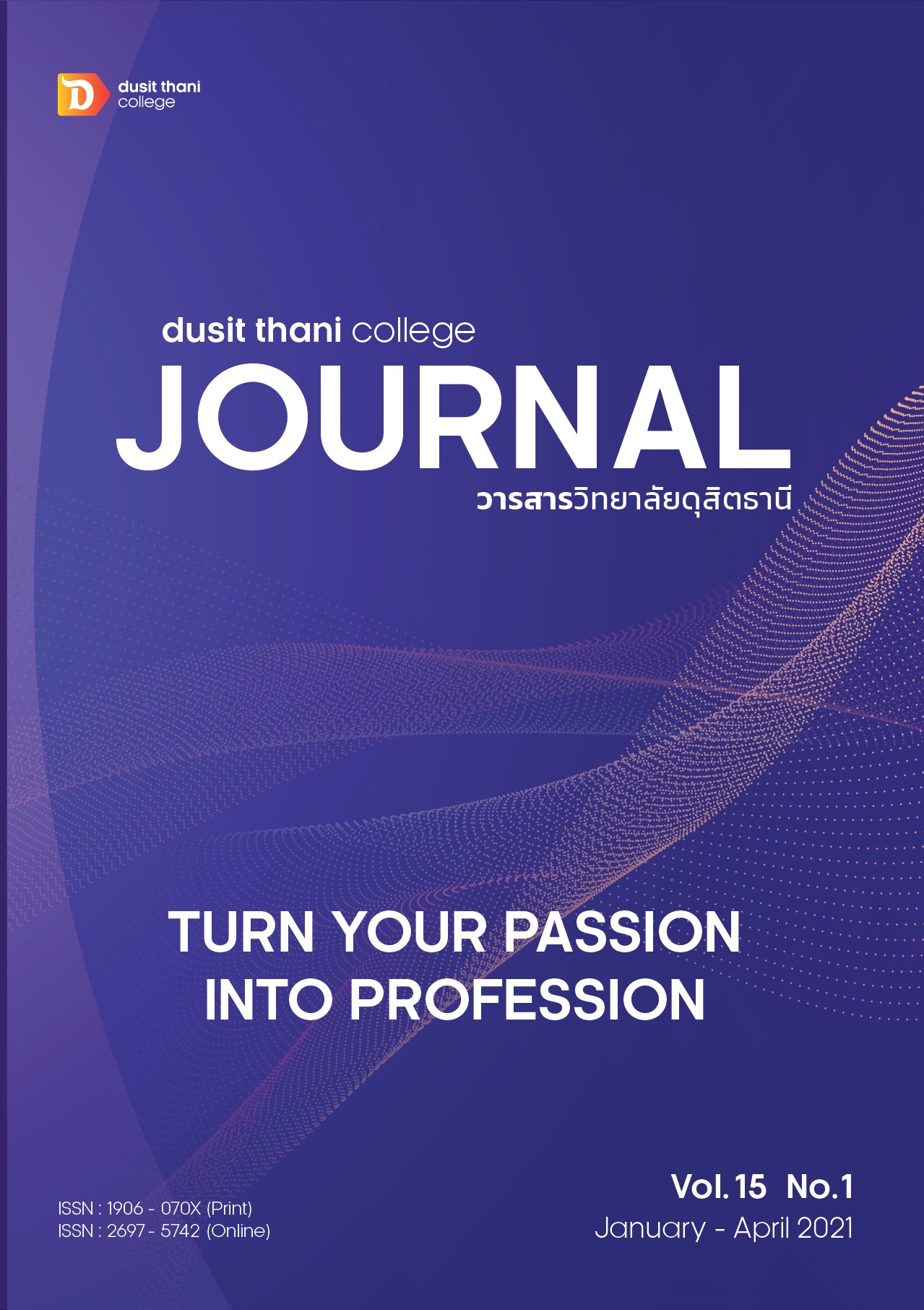THE MARKETING MODEL APPROPRIATE TO COMMUNITY-BASED TOURISM IN CHIANG MAI PROVINCE
Main Article Content
Abstract
This research aims to analyze the marketing model of community-based tourism in Chiang Mai, opted for the marketing management ideas, the tourism marketing concepts, the marketing mix concepts and the CBT-SPECIAL program, to define conceptual framework. This research designates informants as communities’ leaders, tourism committees, including those who play the major role on driving change in tourism operations, a total of 30 communities provided information through the questionnaires. Descriptive statistics were used to analyze the quantitative data for averages and standard deviations, and inference statistics were used with component analysis techniques to find the appropriate community-based tourism marketing model.
The results showed that the appropriate marketing models of community-based tourism in Chiang Mai is CBT-PV model, which consists of two main components: the first component is what the communities offer (P = product), as the ability of the community to deliver tourism products that emphasizes physical appearances on the basis of the readiness and cooperation of local people through the process of providing excellent tourism services. The community has selected a format for communicating tourism content through various media channels to reach the target group of tourists that are truly selected by the community. For the second component (V = value) is the ability of the community to set price for tourism products, programs and activities that create an impressive experience, as well as a way of exchanging experiences between tourists and the communities.
Article Details
Article Screening Policy
- All research and academic articles to be published must be considered and screened by three peer reviews in the relevant field / article.
- All articles, texts, illustrations and tables published in the journal are the personal opinions of the authors. Editors don't always have to agree. And no responsibility whatsoever is the sole responsibility of the author.
- The articles to be published must never be published. Where did you first publish? And not in the consideration of other journals If the audit found that there has been a duplicate publication It is the sole responsibility of the author.
- Any article that the reader sees as being plagiarized or impersonated without reference. Or mislead the work of the author Please let the journal editor know it will be your greatest blessing.
References
the amaMpondo. 10(1), 173-188. [Online]. Available https://www.redalyc.org/pdf/881/88123053017.pdf (12 January 2020)
Booms, B.H. & Bitner, M.J. (1981). Marketing strategies and organization structures for
service firms”, in Donnelly, J.H. & W.R. George (Eds), Marketing of services, 47-51. Chicago: American Marketing Associations.
Centre for the promotion of imports from developing countries (CBI). (2016). [Online].
Available https://www.cbi.eu/.edu (8 September 2016).
Cooper, C., Fletcher, J., Fyall A., Gilbert, D., & Wanhill, S. (2008). Tourism: Principle and
Practice. 6th ed. Harlow: Pearson Education.
Dyah, S., Mohamad, I. E., Agus, S. A. & Yenni, S. U. (2018). Marketing Strategy on
Community Based Tourism in Special Region of Yogyakarta. Journal of Environmental Management and Tourism, 9(4), 733-743.
Edgell, D. L. (2002). The Ten P’s of Travel, Tourism and Hospitality Marketing. From Best
Practices for International Tourism Development for Rural Communities. [Online]. Available http://www.extension.iastate.edu (8 September 2016).
Goeldner, C. R. & Ritchie, J. R. B. (2009). Tourism: Principles, Practices, Philosophies. 7thed.
New Jersey: John Wiley & Sons.
Hinkle, D.E. (1998) Applied Statistics for the Behavioral Sciences. Boston: Houghton Mifflin.
Kotler, P. & Armstrong, G. (1999). Principles of Marketing. 8thed. Prentice Hall.
Kotler, P., Armstrong, G., Wong, V. & Saunders, J. (2008). Principles of Marketing. 5thed.
European ed. Harlow: Pearson Education.
Kotler, P., Browen, J. & Makens, J. (2010) Marketing for Hospitality and tourism. 2nded.
New Delhi: Pearson Education.
McCarthy, E. J. (1960). Basic Marketing: A Managerial Approach. Homewood (Illinois): R. D.Irwin.
Morrison, A. (1989). Hospitality and Travel Marketing. Albany. New York: Delmar Publishers.
Suansri, P., et al. (2008). The suitable marketing model for community-based tourism. Chiang Mai: The Thailand Community Based Tourism Institute (CBT-I).
Suansri, P. (2014). The Development of Community Based Tourism Standard in ASEAN Region towards International Credibility. Chiang Mai: The Thailand Community Based Tourism Institute (CBT-I).
________. (2016). Developing Tourism Markets for CBT in ASEAN. Chiang Mai: The Thailand Community Based Tourism Institute (CBT-I).
Tidtichumlernporn, T. (2014). A Study of Potential Market Demand for Community Based Tourism (CBT) in Thailand and the ASEAN countries. Chiang Mai: Payap University.
Thailand CBT Network Coordination Center (CBT-N-CC) (2016). [Online]. Available https://thaicommunitybasedtourismnetwork.wordpress.com (1 September 2016)
Zucco, F. D., de Quadros, C. M. B., Schmitt, J. R. & Fiuza, T. F. (2017). Tourism image and identity related to cultural practices and heritage perceived by residents: perspectives from the city of Blumenau, Santa Catarina, Brazil. Revista Brasileira de pesquisa em turismo Brazilian Journal of Tourism Research, 11(2), 320-346.


